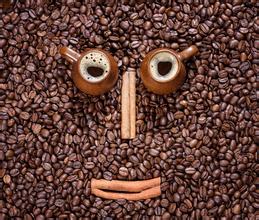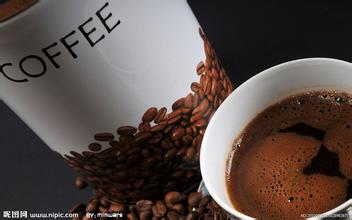Flavor description of Salvadoran Coffee beans introduction to the Variety Manor of the processing method in the region of taste production
Flavor description of Salvadoran Coffee beans introduction to the Variety Manor of the processing method in the region of taste production
The latest government of El Salvador was formed in June 2014. The main cabinet members are Vice President Oscar Ortiz (Oscar Ortiz), Foreign Minister Hugo Roger Mart í nez Bonillia, Finance Minister Carlos C á ceres, economy Minister Tharsis Salom ó n L ó pez, Defense Minister David Mungui í a Pay é s. Sandra Eddiwell Guevara Perez, Minister of Labour and Social Security (female, Sandra Edibel Guevara P é rez), Minister of Agriculture Orestes Autes (Orestes Ortez), Minister of Public Health Violeta Menshiwar (female, Violeta Menj í var), Minister of Public works, Transport, Housing and Urban Development Gerson Mart í nez, Minister of Environment and Natural Resources Lina Lina Pohl Tourism Minister Jose Napole ó n Duarte, Frente Farabundo Mart í parala Liberaci ó n Nacional, the ruling party. In October 1980, the "Farabundo Marty people's Liberation Army", the "National Resistance Forces", the "people's Revolutionary Army", the Central American Labor Revolutionary Party and the Communist Party of El Salvador jointly formed an armed front against the government. In January 1992, the Front signed a Peace Agreement with the Government and became a legitimate political party in December. In June 1995, all parties within the Front uniformly formed the "Farabundo Marti National Liberation Front" party. Three elections were lost in 1994, 1999 and 2004, and the party's candidate Funes won the presidential election in March. By January 2016, the party had about 120000 members.
Pacamara is the artificial breeding variety of Pacas and Maragogipe. It was first cultivated by researchers in El Salvador in 1958. Pacamara is an excellent variety under rare artificial breeding, which is better than blue, and perfectly inherits the advantages of the mother plant. Both the excellent taste of Pacas and the large size of Maragogipe are inherited by raw bean granules. The bean body is at least 70% and 80% of that of elephant beans, with more than 17 orders and more than 100% and more than 18 eyes. Average bean length 1.03 cm (general bean about 0.8-0.85 cm) average bean width 0.71 cm (general bean about 0.6-0.65), thickness 0.37 cm, bean shape plump and round. The biggest feature of this variety is that it is sour, lively and tricky, sometimes biscuit, sometimes fruity, thick and greasy. Don't underestimate El Salvador's coffee production with the best quality from El Salvador and Guatemala. In its heyday, it was once the fourth largest coffee producer in the world, but decades of civil war almost dragged down the coffee industry. fortunately, the war has stopped in recent years, and the coffee industry has come back to life. The only benefit that the civil war brought to the Salvadoran country was that the farmers' fields were barren and failed to catch up with the most popular Katimo exposure train in the past two decades, thus preserving the ancient varieties of bourbon and Tibica, that is to say, El Salvador still uses the most traditional shade planting, which is of positive significance to the aroma of coffee. In 2005, the Salvadoran mixed-race Pacamara boasted in coe, which confused many international cup testers and did not know how to grade it. It was never expected that this hybrid bean not only broke the mellow boundaries of coffee, but also expanded the visibility of Salvadoran coffee.
El Salvador boutique coffee is concentrated in the volcanic rock producing areas of Santa Ana in the west and Charantanan fruit in the northwest. In recent years, the top 10 cup tests are almost entirely from these two producing areas, with an altitude of about 9-1500 meters, mainly bourbon (68%). Followed by Pacas (29%), mixed-race Pakamara, Dulaai and Kaddura accounted for only 3%.
In the early 1990s, guerrilla warfare greatly damaged the country's national economy, reducing coffee production from 3.5 million bags in the early 1970s to 2.5 million bags in 1990-1991. The eastern part of the country was most affected by guerrilla warfare, and many farmers and workers were forced to leave the manor. The shortage of funds has led to a sharp drop in coffee production, from 1200 kg per hectare in the past to less than 900kg per hectare today
El Salvador boutique coffee is concentrated in the volcanic rock producing areas of Santa Ana in the west and Charantanan fruit in the northwest. The top 10 cup tests in recent years almost all come from these two producing areas, with an elevation of 9-1500 meters above sea level, mainly bourbon (68%). Followed by Pacas (29%), mixed-race Pakamara, du Laai and Kaddura accounted for only 3%
The coffee beans from the estate are washed at Mauricio Salaverria's El Divisadero processing plant in Ataco, and then evenly dried in an African elevated shed bed with the help of sun and ventilation. Following the career of his parents and grandparents, Mauricio has been associated with coffee since childhood, especially focusing on the cultivation of boutique coffee

Important Notice :
前街咖啡 FrontStreet Coffee has moved to new addredd:
FrontStreet Coffee Address: 315,Donghua East Road,GuangZhou
Tel:020 38364473
- Prev

Coffee originates from Ethiopian coffee bean variety brand manor region taste introduction
Coffee originates from Ethiopian coffee bean variety brand manor area. 1. Limu coffee grows between 1400 meters and 2000 meters above sea level. Wash the coffee. Excellent quality, with strong nut aromas, suitable acidity, with the intensity of wine. The annual output is 29000 tons. 2. Jima Coffee grows between 1400 and 1800 meters above sea level. Sun-baked coffee. Slight acid, yes
- Next

Description of Taste and Flavor of Rosa Coffee introduction of Grinding Calibration quality by treatment method in Manor area
The taste and flavor of Rosa Coffee describes the quality of grinding scale produced in the manor area and introduces the fragrance of flowers, tropical fruits and strong sweetness. these are the feelings that Rosa has always brought to us. Properly baked, they make you feel like sipping the fragrance of a bouquet of flowers. Maybe you don't know the story of Rose Summer, which is an ancient native from Ethiopia.
Related
- Detailed explanation of Jadeite planting Land in Panamanian Jadeite Manor introduction to the grading system of Jadeite competitive bidding, Red bid, Green bid and Rose Summer
- Story of Coffee planting in Brenka region of Costa Rica Stonehenge Manor anaerobic heavy honey treatment of flavor mouth
- What's on the barrel of Blue Mountain Coffee beans?
- Can American coffee also pull flowers? How to use hot American style to pull out a good-looking pattern?
- Can you make a cold extract with coffee beans? What is the right proportion for cold-extracted coffee formula?
- Indonesian PWN Gold Mandrine Coffee Origin Features Flavor How to Chong? Mandolin coffee is American.
- A brief introduction to the flavor characteristics of Brazilian yellow bourbon coffee beans
- What is the effect of different water quality on the flavor of cold-extracted coffee? What kind of water is best for brewing coffee?
- Why do you think of Rose Summer whenever you mention Panamanian coffee?
- Introduction to the characteristics of authentic blue mountain coffee bean producing areas? What is the CIB Coffee Authority in Jamaica?

